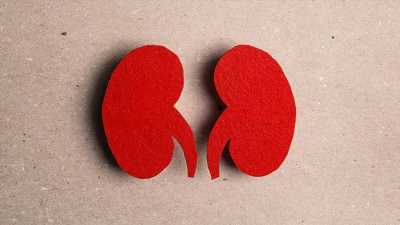Past COVID-19 Infection Could Play Role In Child Hepatitis

June 16, 2022 – There may be a link between the recent unexplained cases of hepatitis in children and prior coronavirus infections, according to new research from Israel.
A new study details five children in Israel who had mild cases of COVID-19 who went on to develop hepatitis; two of these children required liver transplants. But clinicians are cautious about drawing conclusions from such a small study.
“All you can say is that these five cases seem to have proximity to COVID-19, and COVID-19 may be able to cause pediatric liver complications,” says Nancy Reau, MD, the section chief of hepatology at Rush University in Chicago, who was not involved with the study.
While COVID-19 could be one explanation for these hepatitis cases, it is also possible that the two are unrelated, says William Balistreri, MD, director emeritus of the Pediatric Liver Care Center at Cincinnati Children’s Hospital Medical Center. He also is unaffiliated with the study.
Hepatitis means inflammation of the liver and is commonly a response to viral infection from the main hepatitis viruses A, B, C, D, and E. Hepatitis is rare in children, and between 30% to 50% of these pediatric cases have no known cause, according to the CDC.
Beginning in April 2022, children with hepatitis of an unexplained cause have garnered global attention. The United Kingdom now has 240 confirmed cases, the United States is investigating 290 cases, and Israel has reported 12 cases to the World Health Organization. Many investigators think that these liver problems could be related to adenovirus — a common infection in children that normally causes cold or flu-like symptoms — because more than half of global cases tested for the virus have been positive, according to WHO. Only around 12% of children with unexplained hepatitis have tested positive for SARS-CoV-2, the virus that causes COVID-19, but investigators are also considering the possibility that some cases may be related to prior infections.
The study documents five patients, 3-months to 13 years old, with prior coronavirus infection who later developed hepatitis. All weretreated at Schneider Children’s Medical Hospital in Petah Tikva, Israel, during 2021. The paper was published June 10 in the Journal of Pediatric Gastroenterology and Nutrition . Two patients, a 3-month-old and 5-month-old, needed liver transplants. The additional three patients (two 8-year-olds and a 13-year-old) were treated with steroids. None of five children had received any vaccinations against COVID-19. The time between COVID-19 infection and liver problems ranged from 21 to 130 days.
“It took time to be convinced that this could be COVID-related,” says senior study author Orith Waisbourd-Zinman, MD, the director of pediatric liver disease service at Schneider Children’s Medical Hospital. “It’s something that wasn’t described.”
Sudden-onset hepatitis after COVID-19 has been recorded in adults, and the virus has been associated with multisystem inflammatory syndrome in children (MIS-C). The condition causes inflammation through the body, including the heart, lungs and kidneys.
“We know that COVID can be mischievous, and children are no more exempt from that than adults,” Reau says.
Liver samples taken from these five patients did not test positive for COVID-19, similar to how liver samples have tested negative for adenovirus in more recent hepatitis cases around the world. Waisbourd-Zinman suggests that in these patients, hepatitis may have been brought on by an inflammatory response that was triggered by the virus.
Still, there are notable differences between these five cases and current cases internationally. These five children became sick during December 2020 to September 2021, whereas all current counted cases in the United Kingdom occurred after January 2022. The first cases in the United States took place in October 2021. It could be that there were similar hepatitis cases before, Reau says, that were not identified.
The ages of the Israel children with hepatitis also differ from the cases seen globally. More than three-fourths of these reported hepatitis cases occurred in children under 5, WHO reports, though affected individuals have been as young as 1-month-old up to 16 years old. In the United Kingdom, which accounts for about a third of cases reported to WHO, most children with unexplained hepatitis have been between 3 and 5 years old.
More research is needed to tease out any relationship between prior COVID-19 infection and liver inflammation, Balistreri says.
“I’m not sure what to make of any of it yet. We know that SARS-CoV-2 can alter immune responses … so it wouldn’t surprise me,” if COVID-19 and these hepatitis cases were linked, he says. “It’s just that we need more information.”
Source: Read Full Article